 |

|

|
|
|
An up close and personal interview with U.S. Air Force Veteran and Togetherweserved.com Member:
Maj Kelley Culver U.S. Air Force (Ret) (1972-1995)
PLEASE DESCRIBE WHO OR WHAT INFLUENCED YOUR DECISION TO JOIN THE AIR FORCE?
I didn't have any family members influencing me to pursue a military career. No one in my family had lasted more than a few months in the service since my grandfather served in the trenches in WWI. I did have one year of high school ROTC, then enrolled in ROTC in college primarily to avoid the draft. When I dropped out of college in 1972, I realized I needed to do something, so I enlisted figuring that it was better to try to avoid the draft and, hopefully, Vietnam, but also to provide some kind of career opportunity. I was newly married and realized I didn't have many prospects in the civilian world. My high school ROTC experience had been Marine Corps and I had been in Army ROTC in college and knew that neither of those were the path I wanted to follow, so the Air Force seemed like the best choice. We also used to joke that, in the Air Force, the officers get sent to the front to get shot at while the enlisted guys stay behind the lines where it is safe. Of course 18 years later I was an officer commanding a squadron in the Persian Gulf in wartime. Those words came back to haunt me. in ROTC in college primarily to avoid the draft. When I dropped out of college in 1972, I realized I needed to do something, so I enlisted figuring that it was better to try to avoid the draft and, hopefully, Vietnam, but also to provide some kind of career opportunity. I was newly married and realized I didn't have many prospects in the civilian world. My high school ROTC experience had been Marine Corps and I had been in Army ROTC in college and knew that neither of those were the path I wanted to follow, so the Air Force seemed like the best choice. We also used to joke that, in the Air Force, the officers get sent to the front to get shot at while the enlisted guys stay behind the lines where it is safe. Of course 18 years later I was an officer commanding a squadron in the Persian Gulf in wartime. Those words came back to haunt me.
WHETHER YOU WERE IN THE SERVICE FOR SEVERAL YEARS OR AS A CAREER, PLEASE DESCRIBE THE DIRECTION OR PATH YOU TOOK. WHAT WAS YOUR REASON FOR LEAVING?
I should start by saying that when I enlisted, my goal was to stay in to retirement and retire as a master sergeant (E-7). When I finally did retire, it was as a major. I sure missed that goal. My initial classification was in the medical field as a medical services specialist. My first assignment was to Misawa AB, Japan. Next I was assigned to the USAF Hospital, Barksdale AFB, LA, first as an emergency room technician, then clinic NCOIC, and finally retrained into the urology surgical field. In 1978, I was forced to retrain and chose to enter the computer operations field. I remained at Barksdale, assigned to Data Automation under the 2nd Bomb Wing. In 1979, after 5 years at Barksdale, I was reassigned to Sheppard AFB, TX as a technical training instructor in the computer operations course. services specialist. My first assignment was to Misawa AB, Japan. Next I was assigned to the USAF Hospital, Barksdale AFB, LA, first as an emergency room technician, then clinic NCOIC, and finally retrained into the urology surgical field. In 1978, I was forced to retrain and chose to enter the computer operations field. I remained at Barksdale, assigned to Data Automation under the 2nd Bomb Wing. In 1979, after 5 years at Barksdale, I was reassigned to Sheppard AFB, TX as a technical training instructor in the computer operations course.
After a year at Sheppard, the school was moved to Keesler AFB, MS. Rather than move to Keesler, I applied for Bootstrap and OTS and was accepted in 1980. Following OTS, I attended Minuteman III CDB missile operations school at Vandenberg AFB, CA in 1981, followed by an assignment to the 742nd SMS at Minot AFB, ND. After 2 years at Minot, I was medically reclassified, due to a severe back injury, and reclassified back into the computer field. In 1983 I was assigned as the Chief of Data Automation in the 831 AD at George AFB, CA. In 1984, communications and data automation merged and I was reassigned as the Chief of Comm-Electronic Operations for the 2067th Comm Sq at George. In 1986, I was reassigned to SAC HQ as a comm-computer plans officer. For the next three years I worked weapons systems activations and changes such as Peacekeeper Rail Garrison, the B-2 Bomber program, and re-basing issues. In 1989 I was assigned as the aide-de-camp to the Commander, Strategic Communications Division at Offutt. In July 1990, I took command of the 21st Combat Communications Squadron at Patrick AFB, FL. In less than one month, Iraq invaded Kuwait, and my unit mobilized for Desert Shield/Desert Storm. After three years, and numerous deployments in the 21st, I was selected to be Air Force liaison officer to the US Army Signal Center at Ft. Gordon, GA. After 2 years in this position, I retired in 1995.
IF YOU PARTICIPATED IN COMBAT, PEACEKEEPING OR HUMANITARIAN OPERATIONS, PLEASE DESCRIBE THOSE WHICH WERE THE MOST SIGNIFICANT TO YOU AND, IF LIFE-CHANGING, IN WHAT WAY.
I consider my nuclear missile experience as combat operations. Anyone who manned a launch control center during the 1980s would agree. I was not a volunteer for this career field -- it was simply the only way I could get a commission at the time. The experience had a tremendous impact on me in that I saw a side of the military that I had never experienced. The nuclear missile field was unique. It seemed that the only time you were recognized was when you screwed up. We used to say that "excellence was standard." Of course, due to the nature of the field, you didn't really want people who weren't striving for excellence, but this attitude raised competition to a whole new level. The time in the Persian Gulf during Desert Shield and Desert Storm were equally significant to me. I had assumed command of the 21st Combat Communications Squadron of July 15, 1990. Within a week, I deployed much of my squadron to Central America to aid in drug interdiction operations, then three weeks into my command, Iraq invaded Kuwait and my world turned upside down. Once I deployed, I was communications squadron commander for a base supporting B-52 operations. You could call this a baptism by fire. I was still learning the tactical communications business, and suddenly I was in the middle of combat operations. I will say that watching the planes take off for daily bombing runs in Iraq is an image I will never forget. had a tremendous impact on me in that I saw a side of the military that I had never experienced. The nuclear missile field was unique. It seemed that the only time you were recognized was when you screwed up. We used to say that "excellence was standard." Of course, due to the nature of the field, you didn't really want people who weren't striving for excellence, but this attitude raised competition to a whole new level. The time in the Persian Gulf during Desert Shield and Desert Storm were equally significant to me. I had assumed command of the 21st Combat Communications Squadron of July 15, 1990. Within a week, I deployed much of my squadron to Central America to aid in drug interdiction operations, then three weeks into my command, Iraq invaded Kuwait and my world turned upside down. Once I deployed, I was communications squadron commander for a base supporting B-52 operations. You could call this a baptism by fire. I was still learning the tactical communications business, and suddenly I was in the middle of combat operations. I will say that watching the planes take off for daily bombing runs in Iraq is an image I will never forget.
OF ALL YOUR DUTY STATIONS OR ASSIGNMENTS, WHICH ONE DO YOU HAVE FONDEST MEMORIES OF AND WHY? WHICH ONE WAS YOUR LEAST FAVORITE?
My assignment to Misawa, Japan was special because that was where my first son was born. We lived on the local economy the entire tour and so were able to truly experience the country and its culture. I would say that my assignment to Offutt AFB and SAC HQ is probably one of my favorites. The Omaha community was wonderful. There were so many activities for my family, and even though I was on the road constantly for three years, my family and I really enjoyed our assignment. We have always said that if there was one place we would consider going back to, it would be Omaha if we had the chance. My least favorite assignment would have to be my missile ops assignment at Minot AFB. First, Minot was inhospitable weather-wise (we had at least one day of wind chills of 100 degrees below zero and ambient temperatures routinely reached minus 40 degrees). The nearest town was 13 miles from the base, and when you went there, there wasn't much to do. And, as I have said before, the job was extremely negative. If you did your job flawlessly, you were left alone, but if you screwed up, you received instant recognition. But it was the nature of the job and I can accept that. In spite of all this, when my time came to leave, I requested an assignment at Minot. The school system in North Dakota was among the best in the nation, and we were willing to continue to live at Minot to keep our son in the school system. Sadly, the Air Force insisted I relocate to the Mojave desert instead. is probably one of my favorites. The Omaha community was wonderful. There were so many activities for my family, and even though I was on the road constantly for three years, my family and I really enjoyed our assignment. We have always said that if there was one place we would consider going back to, it would be Omaha if we had the chance. My least favorite assignment would have to be my missile ops assignment at Minot AFB. First, Minot was inhospitable weather-wise (we had at least one day of wind chills of 100 degrees below zero and ambient temperatures routinely reached minus 40 degrees). The nearest town was 13 miles from the base, and when you went there, there wasn't much to do. And, as I have said before, the job was extremely negative. If you did your job flawlessly, you were left alone, but if you screwed up, you received instant recognition. But it was the nature of the job and I can accept that. In spite of all this, when my time came to leave, I requested an assignment at Minot. The school system in North Dakota was among the best in the nation, and we were willing to continue to live at Minot to keep our son in the school system. Sadly, the Air Force insisted I relocate to the Mojave desert instead.
FROM YOUR ENTIRE SERVICE, INCLUDING COMBAT, DESCRIBE THE PERSONAL MEMORIES WHICH HAVE IMPACTED YOU MOST?
There are almost too many to recount. In my 23-year career, I held a total of 10 AFSCs, and more assignments than I can remember. Each assignment had an impact on me. My first six years were spent in the medical field in two different AFSCs. Some of the most interesting (and entertaining) people I ever met worked in hospitals. But during these early years, I also met many wonderful NCOs and officers who encouraged me to work to reach my full potential. After six years, I retrained into the computer field and had my first real experience as a supervisor. Again, this time taught me skills that I would use for the rest of my career and beyond. It was also during this time that I was assigned to Sheppard AFB as an instructor in the computer technology branch. This assignment gave me my love for teaching, which is what has been my post-retirement career for almost 20 years now. Certainly my tour at SAC Headquarters remains one of my most memorable times. I was reluctant to take the assignment when offered, and I arrived at the headquarters determined to keep a low profile. My hope was to do four years with no one knowing my name or who I was. It didn't work out. Within six months, one of my trip reports had drawn the attention of the SAC/DO, and my life was never the same. For the next three years, I was on the road constantly, evaluating communication impacts related to new missions, changes in mission, or new weapons systems. So much for low key. Some of the most interesting (and entertaining) people I ever met worked in hospitals. But during these early years, I also met many wonderful NCOs and officers who encouraged me to work to reach my full potential. After six years, I retrained into the computer field and had my first real experience as a supervisor. Again, this time taught me skills that I would use for the rest of my career and beyond. It was also during this time that I was assigned to Sheppard AFB as an instructor in the computer technology branch. This assignment gave me my love for teaching, which is what has been my post-retirement career for almost 20 years now. Certainly my tour at SAC Headquarters remains one of my most memorable times. I was reluctant to take the assignment when offered, and I arrived at the headquarters determined to keep a low profile. My hope was to do four years with no one knowing my name or who I was. It didn't work out. Within six months, one of my trip reports had drawn the attention of the SAC/DO, and my life was never the same. For the next three years, I was on the road constantly, evaluating communication impacts related to new missions, changes in mission, or new weapons systems. So much for low key.
As a result, I was also selected to serve on the planning team for the B-2 bomber program for almost three years. This was a surreal time as the program was "black world" (no Congressional oversight) for much of that time. I also was part of several mission changes including the deactivation of the SR-71 and re-basing of several operational aircraft. I also served as the communications plans officer on the SAC team sent to the Pentagon to participate in the base realignment and closure program in 1989. My last year at Offutt was spent as the aide-d-camp to the Commander of the Strategic Communications Division. It was a demanding assignment, but I came to know one of the most colorful general officers (Stancil L. Dilda) the Air Force had to offer. I learned much from him that helped me in my time as a squadron commander.
WHAT ACHIEVEMENT(S) ARE YOU MOST PROUD OF FROM YOUR MILITARY CAREER?
In my mind, my greatest achievement of my military career was educational. I entered the Air Force as a college drop-out with 29 questionable semester hours. In my first eight years, I earned an associates degree and a bachelors degree, then followed with a masters degree at the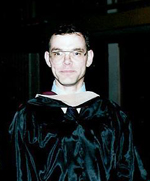 14-year point. The Air Force, and the people I worked for, believed in my abilities when I didn't, and as a result, I found the confidence to pursue educational goals I would never have considered. And the fact that I entered as a no-stripe airman and retired as a major was a significant accomplishment in my mind. It was certainly beyond anything I imagined when I enlisted. I received many medals and awards during my career -- its hard to stay in more than 20 years and not earn some. But one in particular stands out. My unit in Saudi Arabia received a valor device on our Outstanding Unit Award, and I have always been very proud of that. But I must say, I credit my troops for that award. I was fortunate to have outstanding personnel working for me. 14-year point. The Air Force, and the people I worked for, believed in my abilities when I didn't, and as a result, I found the confidence to pursue educational goals I would never have considered. And the fact that I entered as a no-stripe airman and retired as a major was a significant accomplishment in my mind. It was certainly beyond anything I imagined when I enlisted. I received many medals and awards during my career -- its hard to stay in more than 20 years and not earn some. But one in particular stands out. My unit in Saudi Arabia received a valor device on our Outstanding Unit Award, and I have always been very proud of that. But I must say, I credit my troops for that award. I was fortunate to have outstanding personnel working for me.
OF ALL THE MEDALS, AWARDS, QUALIFICATION BADGES OR DEVICES YOU RECEIVED, PLEASE DESCRIBE THE ONE(S) MOST MEANINGFUL TO YOU AND WHY?
Certainly my missile operations badge is meaningful. Missile launch officer school was long and challenging, as was the job. And, while I did not enjoy the assignment in missile ops, the experience was valuable. We always said that, if you weren't going to fly, missile operations was the next best operational assignment. Certainly that badge gave me credibility when I was a staff officer at SAC Headquarters since the people I dealt with could see I had some operational experience. The campaign awards I received from the first Gulf War are also meaningful. I had joined the Air Force during wartime, but honestly believed I would never have any combat experience. And while I would not wish combat on anyone, the experience was important to me, again because it allowed me to empathize with others who have also had combat experience.
WHICH INDIVIDUAL(S) FROM YOUR TIME IN THE MILITARY STAND OUT AS HAVING THE MOST POSITIVE IMPACT ON YOU AND WHY?
There were numerous people who influenced me during my career. That is one of the great things about a military career. There was, however, one person who had a tremendous impact which has lasted throughout my life. From 1976 to 1978, I worked for a doctor doing his two-year obligation from a Vietnam-era deferment. He was only in for a two-year stint, and so was not particularly military, but he saw something in me that I had never seen. Early in our relationship, he asked me why I didn't finish college and seek a commission. I gave my usual answer -- I didn't have the aptitude for college work. He didn't accept that answer and instead set out to convince me that I had the potential to do anything I put my mind to. He believed so strongly in me that, when his time came to separate from the Air Force, he offered me a job and offered to send me back to college. I reluctantly declined his offer, because I was dedicated to a military career, but his confidence in me changed my life. Certainly his influence is what caused me to finish college and apply for OTS. When I was promoted to major, it was his major's leaves that I wore as a reminder of the influence he had on me. his two-year obligation from a Vietnam-era deferment. He was only in for a two-year stint, and so was not particularly military, but he saw something in me that I had never seen. Early in our relationship, he asked me why I didn't finish college and seek a commission. I gave my usual answer -- I didn't have the aptitude for college work. He didn't accept that answer and instead set out to convince me that I had the potential to do anything I put my mind to. He believed so strongly in me that, when his time came to separate from the Air Force, he offered me a job and offered to send me back to college. I reluctantly declined his offer, because I was dedicated to a military career, but his confidence in me changed my life. Certainly his influence is what caused me to finish college and apply for OTS. When I was promoted to major, it was his major's leaves that I wore as a reminder of the influence he had on me.
CAN YOU RECOUNT A PARTICULAR INCIDENT FROM YOUR SERVICE WHICH MAY OR MAY NOT HAVE BEEN FUNNY AT THE TIME, BUT STILL MAKES YOU LAUGH?
During my tour at SAC HQ, I worked in an office that was under constant pressure and short suspenses. The job took a toll on people, so we had to find ways to let off steam -- not always easy in a headquarters building. Over the years, our office became famous for doing crazy things. For example, one year, our branch chief gave our division chief a gift-wrapped live chicken for his birthday. What do you do in a headquarters building with a live chicken? Our most famous prank came in 1988. We were preparing for the annual Strategic Communications Division dining-out. This event was attended by 850 officers. My office decided that we needed to do something to provide some entertainment for an otherwise dull evening. We considered numerous ideas, but couldn't come up with anything that was logistically possible. Finally, I had an idea. I arranged for Domino's Pizza to deliver a pizza to the head table. At the time, it seemed like a good idea. Of course, the colonel, who was my immediate boss, realized immediately who had done it, and didn't think it was at all funny. As luck would have it, the main course for dinner was late, so the general, who was president of the mess, rather than being mad, proceeded to serve pizza to the entire head table. Fortunately he had a sense of humor much like ours. In typical headquarters form, two days later, my office received a tasking from that same general -- write a thank you note to Domino's Pizza for the pizza. Ironically, I had to pay for the pizza, and only got $1.00 off the price of the pizza in exchange for the advertising Domino's received.
WHAT PROFESSION DID YOU FOLLOW AFTER YOUR MILITARY SERVICE AND WHAT ARE YOU DOING NOW? IF YOU ARE CURRENTLY SERVING, WHAT IS YOUR PRESENT OCCUPATIONAL SPECIALTY?
After retiring, I spent a year as a hospital administrator. I only stayed in the job for a year because I was miserable in it. Out of the blue, I was offered an interview at a Catholic high school to teach computer science. The second year, I began teaching math, and after five years, I had completed a degree in school administration and was assistant principal of that same school. I will say that I was still in the military mode of constantly seeking a higher position. Old habits are hard to break. After five years as the assistant principal, I realized I missed teaching and chose to return to the classroom. It was the best decision I have made since retiring. During that time, I also began a five-year formation program to become a permanent deacon in the Catholic Church. Along the way, I received a masters degree in theology and was ordained a permanent deacon in the Diocese of Savannah, Georgia in May 2012. Almost 20 years later, I am still teaching at that same high school (now teaching theology), and serve as part of the clergy staff at the Catholic parish on Fort Gordon, GA.. I have truly found my place and been greatly blessed. and after five years, I had completed a degree in school administration and was assistant principal of that same school. I will say that I was still in the military mode of constantly seeking a higher position. Old habits are hard to break. After five years as the assistant principal, I realized I missed teaching and chose to return to the classroom. It was the best decision I have made since retiring. During that time, I also began a five-year formation program to become a permanent deacon in the Catholic Church. Along the way, I received a masters degree in theology and was ordained a permanent deacon in the Diocese of Savannah, Georgia in May 2012. Almost 20 years later, I am still teaching at that same high school (now teaching theology), and serve as part of the clergy staff at the Catholic parish on Fort Gordon, GA.. I have truly found my place and been greatly blessed.
WHAT MILITARY ASSOCIATIONS ARE YOU A MEMBER OF, IF ANY? WHAT SPECIFIC BENEFITS DO YOU DERIVE FROM YOUR MEMBERSHIPS?
I am a life member of the Disabled American Veterans. As to benefits, the DAV has been extremely helpful in procuring and protecting my VA benefits. I have been plagued with health issues since retirement, and while they have not prevented me from living a full and productive life, they have made life challenging some times. The counselors at DAV have been a wonderful resource for me and countless other vets.
IN WHAT WAYS HAS SERVING IN THE MILITARY INFLUENCED THE WAY YOU HAVE APPROACHED YOUR LIFE AND YOUR CAREER?
 As I said, I came into the military with little ambition other than staying for twenty years. I didn't have a particularly high opinion of my abilities, and had it not been for my military experiences, I don't believe I would have accomplished a great deal. The military, and the wonderful people I served with, gave me the confidence to do more than I ever imagined I could do. There is no doubt the military made me who I am today. Had it not been for my military career, I would not have accomplished nearly as much as I have. As I said, I came into the military with little ambition other than staying for twenty years. I didn't have a particularly high opinion of my abilities, and had it not been for my military experiences, I don't believe I would have accomplished a great deal. The military, and the wonderful people I served with, gave me the confidence to do more than I ever imagined I could do. There is no doubt the military made me who I am today. Had it not been for my military career, I would not have accomplished nearly as much as I have.
BASED ON YOUR OWN EXPERIENCES, WHAT ADVICE WOULD YOU GIVE TO THOSE WHO HAVE RECENTLY JOINED THE AIR FORCE?
The most important thing I can say is enjoy yourself. I would also say, never pass up an opportunity. I retrained frequently during my career, and much of that was because I was willing to attempt new things when they came along. That willingness was recognized and rewarded by my superiors and certainly helped me advance my career. But it also made the job a lot more enjoyable as I never had time to get tired of what I was doing. Towards the end, I learned that when the job is no longer enjoyable, it is time to leave or retire. I worked hard and I had fun, even in the most stressful situations.
IN WHAT WAYS HAS TOGETHERWESERVED.COM HELPED YOU REMEMBER YOUR MILITARY SERVICE AND THE FRIENDS YOU SERVED WITH.
 I have enjoyed reading about the careers of other members. I have little opportunity for connection with Air Force members and retirees. This site has allowed me to feel connected with "my own kind." One very memorable event that came about through TogetherWeServed happened to me just a few years ago. I received a message from a retired master sergeant who had been my recruiter in 1972. He had seen my profile and surprisingly remembered my name. Because of TogetherWeServed, I was able to connect with someone I hadn't seen in almost 40 years. I have enjoyed reading about the careers of other members. I have little opportunity for connection with Air Force members and retirees. This site has allowed me to feel connected with "my own kind." One very memorable event that came about through TogetherWeServed happened to me just a few years ago. I received a message from a retired master sergeant who had been my recruiter in 1972. He had seen my profile and surprisingly remembered my name. Because of TogetherWeServed, I was able to connect with someone I hadn't seen in almost 40 years.
|


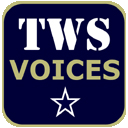
Read Other Interviews in the TWS Voices Archive
| Share this Voices Edition on:
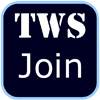

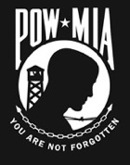  |
|
TWS VOICES
TWS Voices are the personal stories of men and women who served in the US Military and convey how serving their Country has made a positive impact on their lives. If you would like to participate in a future edition of Voices, or know someone who might be interested, please contact TWS Voices HERE.
This edition of Air Force Voices was supported by:
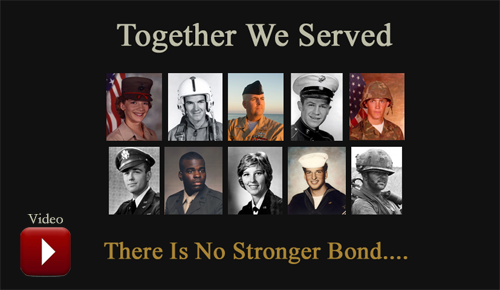
AirForce.Togetherweserved.com
For current and former serving Members of the United States Air Force, Army Air Corps, Air Force Reserve and Air National Guard TogetherWeServed is a unique, feature-rich resource helping Airmen reconnect with lost Wingmen, share memories and tell their Air Force story.
To join AirForce.Togetherweserved.com, please click HERE.
|
|